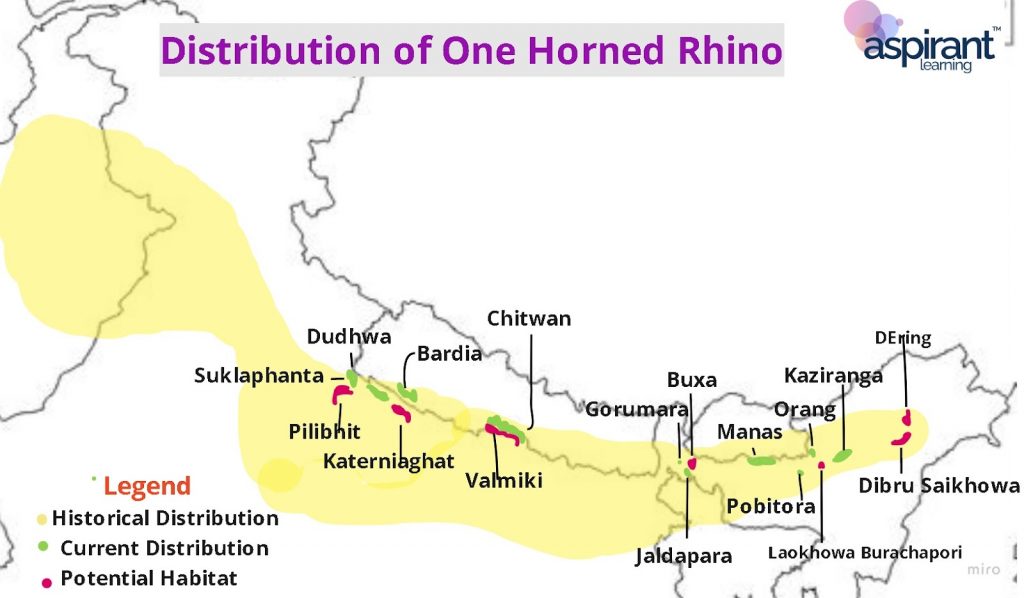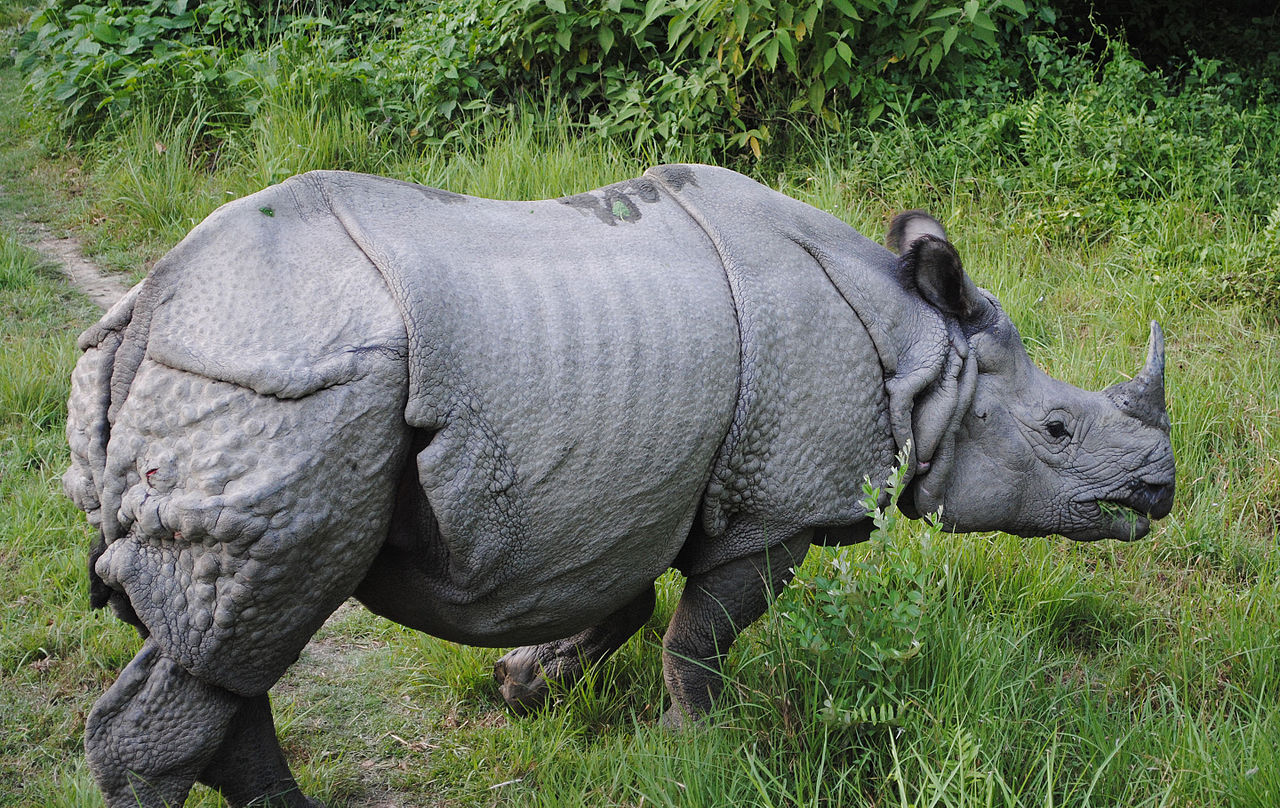Key Takeaways
Orang National Park witnesses increases in incidents of One Horned Rhino poaching.
About Orang National Park
- Location: located on the northern bank of the Brahmaputra river in Assam.
- Flora and fauna: includes great Indian rhinoceros, pygmy hog, Asian elephant, wild water buffalo and Bengal tiger.
- Associated Rivers : Pachnoi river, Belsiri river and Dhansiri River border the park and join the Brahmaputra river.
- Why Important : It is the only stronghold of rhinoceros on the north bank of the Brahmaputra river.
- In 1985, it was designated as a sanctuary, and in 1999, it was designated as a national park.
Other National Parks of Assam
- Nameri National Park
- Manas National Park
- Kaziranga National Park
- Dibru-Saikhowa National Park
- Dehing Patkai National Park
- Raimona National Park
About Greater One Horned Rhino
- Greater One Horned Rhino also called Indian Rhino is a rhinoceros species native to the Indian subcontinent
- Protection Status
- IUCN Red List – Vulnerable
- CITES – Appendix I (Threatened with the extinction and CITES prohibits the international trade in specimens of these species except when the purpose of the import is not commercial, for instance for scientific research).
- Wildlife Protection Act of 1972 – Schedule I
- Where do we find them?

- Threats Face by Greater One Horned Rhinos
- Poaching
- Habitat Loss
- Human-Rhino Conflict
- Population density
- Genetic diversity is dwindling.
- What is being done to protect them?
- The five rhino range countries (India, Bhutan, Nepal, Indonesia, and Malaysia) have signed the ‘New Delhi Declaration on Asian Rhinos 2019’ for the species’ conservation and protection.
- The Ministry of Environment Forest and Climate Change (MoEFCC) has begun a project to create DNA profiles of all rhinos in the country.
- National Rhino Conservation Strategy: It was launched in 2019 to conserve the greater one-horned rhinoceros.
- Indian Rhino Vision 2020 (IRV2020), WWF India is working with the government of Assam and other partners to increase the population from about 2500 to 3000 and expand the distribution to seven Protected Areas
- Reducing Illegal Trade: Several measures are being taken to stop the illegal trade of rhino horn by its concerned organization along with TRAFFIC, a wildlife trade monitoring network.
Content Source : New Indian Express



